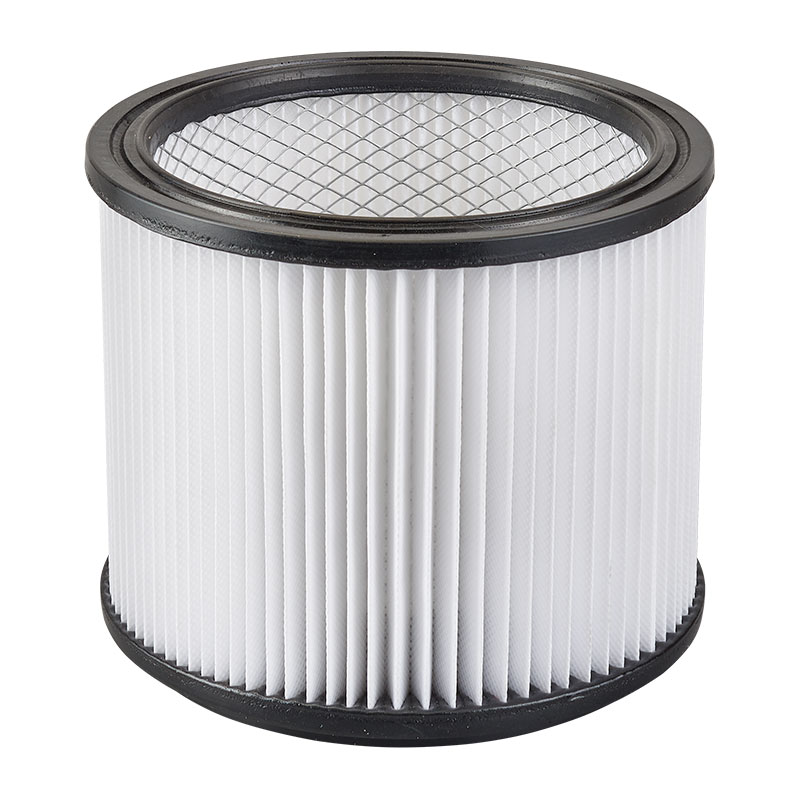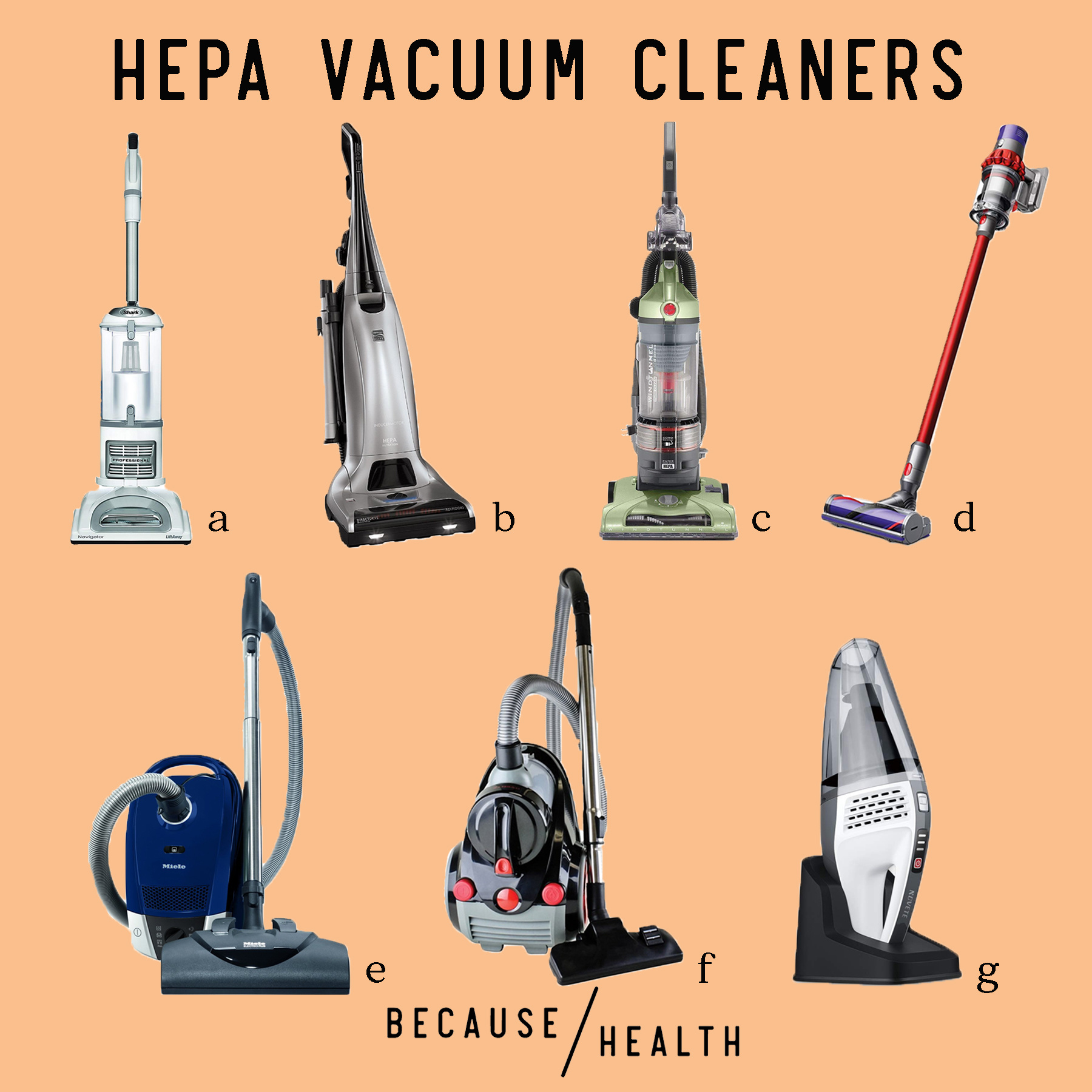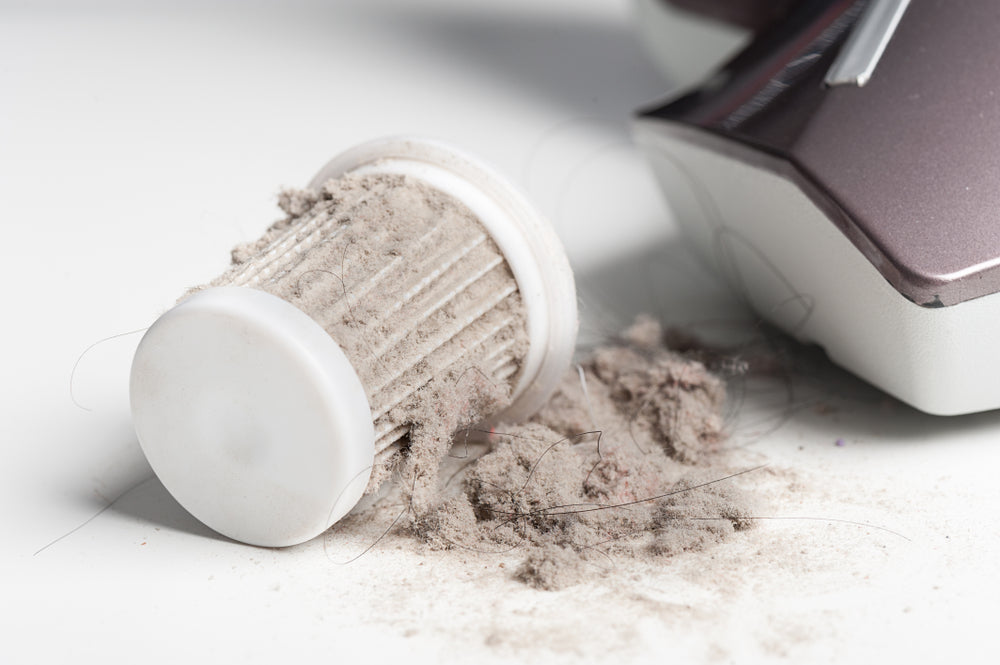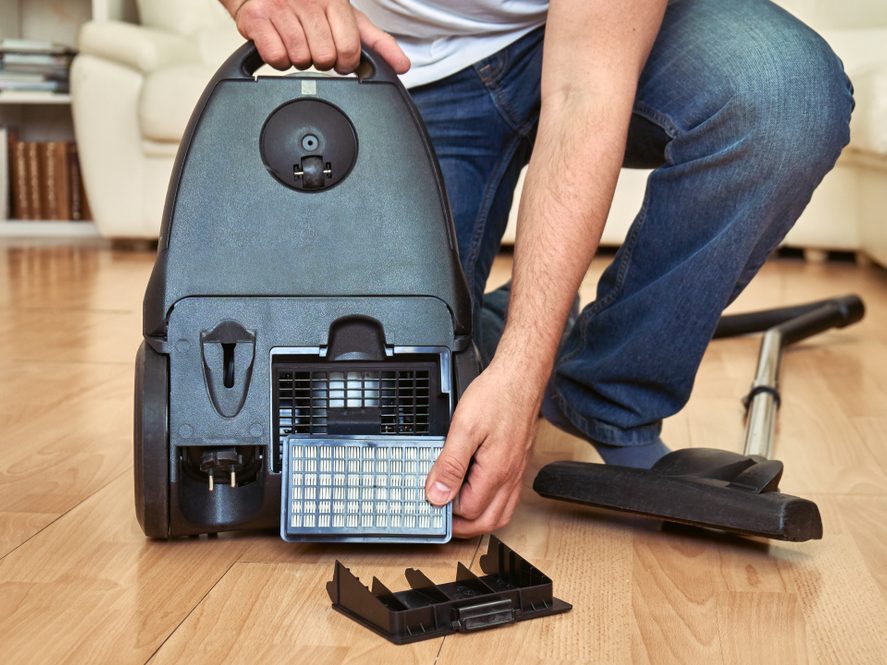A HEPA filter in a vacuum cleaner is a high-efficiency particulate air filter. It captures at least 99.97% of particles that are 0.3 microns in size.
HEPA filters are essential for maintaining a clean and healthy indoor environment. These filters trap dust, allergens, pet dander, and other microscopic particles. By using a vacuum cleaner equipped with a HEPA filter, you significantly reduce airborne pollutants. This is particularly beneficial for allergy sufferers and those with respiratory issues.
HEPA filters not only improve air quality but also enhance the effectiveness of your vacuum cleaner. Regular maintenance and replacement of these filters ensure optimal performance. Investing in a vacuum with a HEPA filter is a smart choice for anyone who values cleanliness and health.
Page Contents
- 1 Introduction To Hepa Filters
- 2 Hepa Technology In Vacuum Cleaners
- 3 Types Of Hepa Filters
- 4 Importance Of Hepa Filters For Allergy Sufferers
- 5 Maintaining Your Hepa Filter
- 6 Hepa Filters And Vacuum Cleaner Performance
- 7 Comparing Vacuum Cleaners With And Without Hepa Filters
- 8 Expert Tips For Maximizing Hepa Filter Benefits
- 9 The Future Of Hepa Filters In Home Cleaning
- 10 Frequently Asked Questions
- 11 Conclusion
Introduction To Hepa Filters
HEPA filters are essential for clean air. They trap tiny particles, like dust and pollen. These filters can catch particles as small as 0.3 microns. This means they remove many allergens from the air.
The term “HEPA” stands for High-Efficiency Particulate Air. This type of filter was developed during World War II. Scientists needed a way to filter radioactive particles.
Today, HEPA filters are used in many devices. They are especially popular in vacuum cleaners. Using a vacuum with a HEPA filter helps improve indoor air quality.

Credit: www.fervi.com
Hepa Technology In Vacuum Cleaners
HEPA filters are important for vacuum cleaners. They trap tiny particles like dust and pollen. This helps improve indoor air quality. HEPA stands for High-Efficiency Particulate Air. These filters can capture 99.97% of particles that are 0.3 microns or larger.
HEPA filters work by using a dense mat of fibers. Air passes through these fibers, trapping particles. The design of the filter helps to capture even the smallest allergens. This makes them great for people with allergies or asthma.
| Benefits of HEPA Filtration |
|---|
| Reduces allergens in the air |
| Improves overall air quality |
| Enhances vacuum cleaner efficiency |
| Helps control dust and pet dander |
Types Of Hepa Filters
Two main types of HEPA filters exist: True HEPA and HEPA-Type. True HEPA filters capture at least 99.97% of particles. They filter particles as small as 0.3 microns. These filters are often used in medical and industrial settings.
HEPA-Type filters, on the other hand, may not meet the same standards. They can capture fewer particles, usually around 85%. Their effectiveness varies greatly among brands.
Choosing the right HEPA filter depends on your needs. For allergy sufferers, a True HEPA filter is best. For general cleaning, a HEPA-Type filter can be sufficient. Always check the filter rating before making a purchase.

Credit: ceh.org
Importance Of Hepa Filters For Allergy Sufferers
HEPA filters are essential for reducing allergens in your home. They trap tiny particles, such as dust, pollen, and pet dander. This helps create a cleaner environment for everyone, especially those with allergies.
Using a vacuum with a HEPA filter can significantly lower allergy symptoms. It captures 99.97% of particles as small as 0.3 microns. This makes it easier to breathe and feel comfortable at home.
Regular cleaning also helps in allergen reduction. Combining HEPA filters with routine cleaning will make your home healthier. Consider investing in a vacuum cleaner with a HEPA filter for the best results.
Maintaining Your Hepa Filter
Maintaining your HEPA filter is essential for optimal vacuum performance. Regular cleaning helps keep air fresh and free of allergens. Check your vacuum’s manual for specific cleaning instructions.
Replace the filter every 6 to 12 months for best results. A dirty filter can reduce suction power. Signs of a worn filter include increased dust and poor air quality.
To extend filter life, avoid vacuuming large debris or wet materials. Always empty the dust bin before it becomes full. Store your vacuum in a dry place to prevent mold growth.
Hepa Filters And Vacuum Cleaner Performance
HEPA filters are essential for improving vacuum cleaner performance. They capture tiny dust particles and allergens, ensuring cleaner air. A HEPA filter can enhance suction power and overall efficiency. This leads to a healthier home environment.
Compatibility with various vacuum models is crucial. Many brands offer HEPA filters designed for their specific models. Always check your vacuum’s manual for suitable filter options. Using the right filter ensures optimal performance and longevity.
| Vacuum Model | Compatible HEPA Filter |
|---|---|
| Model A | HEPA Filter A1 |
| Model B | HEPA Filter B2 |
| Model C | HEPA Filter C3 |
Comparing Vacuum Cleaners With And Without Hepa Filters
HEPA filters trap tiny particles, making the air cleaner. They are especially good for allergens like dust and pollen. Vacuum cleaners with HEPA filters are more expensive. However, they provide better air quality. Investing in a HEPA filter can save on health costs later.
Long-term health benefits can outweigh the initial cost. Cleaner air leads to fewer respiratory issues. Allergies may improve with regular use of HEPA vacuum cleaners. A healthier home environment is worth the extra expense.

Credit: molekule.com
Expert Tips For Maximizing Hepa Filter Benefits
To maximize HEPA filter benefits, follow these best practices for vacuum usage:
- Always use the vacuum on carpets and hardwood floors.
- Change or clean the HEPA filter regularly to maintain efficiency.
- Vacuum slowly to catch more dust and allergens.
- Use attachments for corners and furniture to get every spot.
- Keep the vacuum clean and free of debris.
For complementary air purification strategies:
- Use air purifiers with HEPA filters in living spaces.
- Open windows for fresh air, when possible.
- Regularly dust and wipe surfaces to reduce allergens.
- Consider houseplants that help purify the air.
The Future Of Hepa Filters In Home Cleaning
The future of HEPA filters in home cleaning looks very promising. New innovations in filtration technology are emerging. These advancements aim to improve indoor air quality. Smart filters can now detect air quality changes automatically. This feature helps keep homes cleaner and healthier.
Evolving standards and regulations are also shaping HEPA filters. Stricter rules ensure better air filtration. Many manufacturers are adopting these new standards. This change benefits everyone by reducing allergens and pollutants in the air.
With ongoing research, HEPA filters will become even more effective. People can expect more energy-efficient options in the future. This will help save money while keeping homes clean.
Frequently Asked Questions
What Is A Hepa Filter In A Vacuum Cleaner?
A HEPA filter, or High-Efficiency Particulate Air filter, is designed to trap tiny particles. It captures allergens, dust, and pollutants effectively. This makes vacuum cleaners equipped with HEPA filters ideal for allergy sufferers and maintaining cleaner indoor air quality.
How Does A Hepa Filter Work?
HEPA filters work by using a dense mat of fibers to trap particles. Air passes through the filter, and tiny particles get caught in the fibers. This process significantly reduces the number of allergens and harmful particles released back into the air.
Why Use A Vacuum Cleaner With A Hepa Filter?
Using a vacuum cleaner with a HEPA filter improves indoor air quality. It effectively traps allergens and dust, making it beneficial for those with allergies or asthma. These vacuums also help reduce the spread of dust mites and other irritants in your home.
How Often Should I Replace My Hepa Filter?
Typically, HEPA filters should be replaced every 6 to 12 months. However, this can vary based on usage and the manufacturer’s recommendations. Regularly checking your filter ensures optimal performance and maintains air quality in your home.
Conclusion
Choosing a vacuum cleaner with a HEPA filter can significantly improve your indoor air quality. These filters capture allergens, dust, and pet dander effectively. Investing in a HEPA-equipped vacuum not only keeps your home clean but also promotes a healthier environment.
Make an informed choice for a cleaner, fresher living space.

